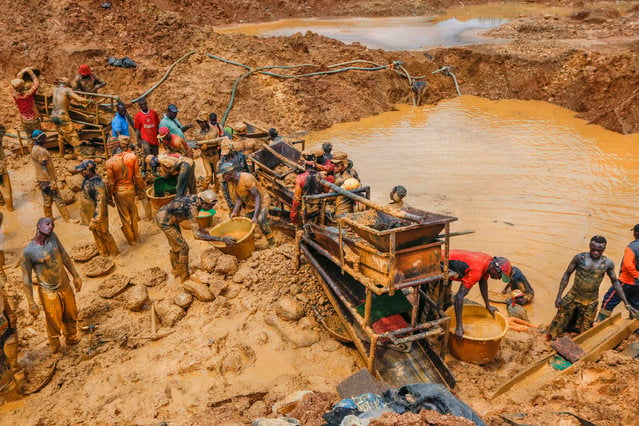The Association of Professional Development Communicators-Ghana (APDC-Ghana) has recently highlighted the urgent need for government intervention to address the growing crisis of illegal mining, commonly referred to as galamsey. In a press release dated October 11, they emphasized the necessity of conducting comprehensive research in areas affected by illegal mining, particularly focusing on the youth. The association believes engaging with young people in these regions is essential for developing sustainable solutions to the socio-economic and environmental challenges posed by such activities. They called on the government to take decisive action, particularly advocating for an immediate halt to all small-scale mining in water bodies and forest reserves. This pause would enable a thorough assessment of the impacts and conditions surrounding all mining sites.
APDC-Ghana has expressed significant concern regarding the lack of long-term effectiveness in previous government-led anti-galamsey initiatives. Past strategies, including temporary bans, Operations Vanguard and Halt, as well as the crackdown on illegal mining equipment, are seen as insufficient to resolve the issue. While these actions showcased a governmental commitment to addressing illegal mining, APDC-Ghana argues that they offered merely short-term relief without tackling the fundamental causes of the problem, nor did they present viable alternatives for sustainable economic development in the affected communities. According to their statement, a paradigm shift is required to implement enduring solutions.
To create a robust response to the illegal mining crisis, APDC-Ghana suggests a multifaceted approach that includes extensive research into the socio-economic drivers of illegal mining practices. This research is crucial for understanding what compels communities, particularly young individuals, to engage in illegal mining. By identifying these underlying factors, the organization believes it can offer valuable insights into sustainable alternatives that could motivate local populations to pursue different livelihoods. They firmly contend that such validation of local drivers through comprehensive studies will lead to more effective solutions.
Furthermore, the association advocates for active community engagement, urging the government to facilitate town hall meetings that allow locals to share their experiences and insights about illegal mining. This level of community input is viewed as vital for ensuring that any proposed solutions are relevant and appreciate the specific needs of those affected. By fostering a community-driven approach, APDC-Ghana believes that strategies developed will be more impactful and will promote greater buy-in from the population, as these initiatives would be grounded in the realities faced by communities engaged in or impacted by illegal mining activities.
In addition, there is a recommendation for the reassessment of mining licenses to enhance accountability within the sector. APDC-Ghana emphasizes that ensuring mining operations adhere to environmental standards is critical in the fight against illegal mining. By scrutinizing existing licenses, the authorities can better regulate mining practices, mitigate environmental degradation, and promote responsible exploration and extraction practices. Such regulatory frameworks are essential for creating a mining sector that is both environmentally sustainable and economically productive, contributing to the overall wellbeing of local communities.
In conclusion, APDC-Ghana’s comprehensive appeal to the government highlights the pressing need for research-driven and socially responsive approaches to combat illegal mining in Ghana. Their emphasis on understanding the socio-economic drivers leading to illegal mining, coupled with a call for community engagement and accountability in the mining sector, provides a blueprint for addressing the complex challenges associated with galamsey. By implementing these recommendations, the government can move towards a more sustainable and equitable resolution of the issues surrounding illegal mining, ultimately benefiting both affected communities and the broader environment.














